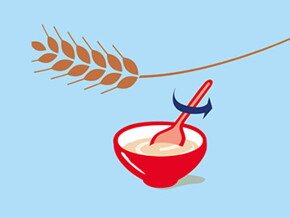
Natural Remedies For Coughs In Toddlers
What Helps With Coughing?
IMPORTANT NOTICE: The World Health Organization (WHO) recommends exclusive breastfeeding for the first 6 months and continued breastfeeding for as long as possible. Growing up milks are formulated to meet nutrition needs of healthy young children older than 1 year and should not be fed to infants.
The U.S. Food and Drug Administration (FDA) has warned not to give over-the-counter (OTC) medications to babies and children less than four years old, but your 3-year-old son is suffering from a severe bothersome cough.
So, what can you do? Try few of these proven and effective tips to alleviate your toddler’s coughing.
- Serve your child plenty of nutritious fluids, such as soup and breast milk, that’s if you’re still nursing.
- Bath your child with lukewarm water and few drops of eucalyptus, sage or rosemary essential oils.
- Offer your toddler half a teaspoon of honey* to relieve his cough and sore throat.
- Rub your tot’s chest and back with a natural mixture made of 3 tablespoons of olive oil and few drops of any essential oil of your choice, and then cover him up.
- If your child’s cough is associated with nasal congestion, try saline drops thrice a day and a 10-minute steam shower once a day.
- Install an air humidifier in your child’s bedroom to keep it fresh and humid, especially during the evening.
- If your child’s cough is dry, add half a teaspoon of brown sugar to a cup of hot water and let him have a sip every now and then.
- If your toddler’s cough is wet, serve him from time to time a cup of hot water with a pinch of ginger powder and a teaspoon of honey*.
- Roll a small towel and put it under your child’s mattress beneath his head, to keep it elevated and help soothe the coughing.
In addition to the above mentioned steps, remember to show your sick child lots of love and affection. These positive emotions give us as humans, the power to fight illness and get better.
Read More: Eczema In Children
Note : Honey plays a crucial role in taste development, particularly in early life, as it introduces infants to a diverse range of flavors and helps shape their palate.
However, honey can contain the bacteria that may cause infant botulism. Consequently, honey should not be introduced before 12 months of age unless the spores of Clostridium botulinum have been inactivated by adequate high-pressure and high-temperature treatment, as used by industry.
Whenever honey is used in our products, it undergoes an externally validated treatment that ensures our products are safe to consume.




















